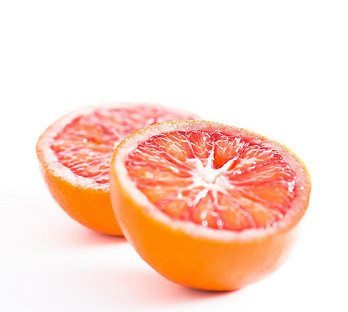A recent study published in the Journal of Public Health Dentistry names two drinks as the most significant contributors to dental damage: soft drinks and fruit juice. Your Portland dentists at Burlingame Dental Arts know that our patients don’t indulge in soda, but juice can be a surprising culprit– isn’t juice supposed to be good for you? Let’s take a closer look.
pH and Prevention
Saliva is one of the most amazing dental tools for preventing cavities we all have on our side, and do you know why? OK, there’s a lot of reasons. But the one we want to mention is pH— saliva works as a buffer in our mouths to keep oral pH alkaline, meaning at or above seven on the pH scale.
The pH of the mouth is critical for cavity prevention. Acid eats away at our dental enamel, exposing the softer dentin underneath and leading to erosion and cavities, which are painful and damaging. An acidic oral environment can happen from foods, drinks, and of course the bacteria who release acid as a metabolic byproduct after consuming sugars.
Saliva washes away acid and alkalinizes the oral cavity naturally, but if new acidic substances are constantly introduced, it can’t do its job.
Soda: the unsurprising suspect
Sipping on soda is one foolproof way to constantly introduce new acidic products into your oral cavity. The subsequent bathing of teeth in acidic, sugar-rich environment simultaneously lowers the oral pH to dangerous levels and feeds the bacteria who lower it further. In some studies, damage has been shown to occur within 30 seconds of imbibing soda– it is seriously bad for your teeth!
Juice: the sleepier suspect
Many people are surprised to learn the juice can have pretty much the same oral effects as soda: it is high in acid and sugar, and creates the same vicious cycle of destruction that soda does.
As “natural” as they are marketed to be, old standbys like O.J. and grapefruit juice pack both a low pH and– especially in the case of grapefruit– are almost always high in sugars added to make them palatable.
Added sugars are a caution with many juices; fruit-based “beverages” are often marketed as a healthy alternative to sodas, when in fact that added sugar equals that of the soft drink consumers are attempting to avoid. What makes this even worse is that juice is commonly offered to children in sippy cups or straws, bathing their new teeth in acid and sugar while adults believe they are providing their offspring with a nutritious alternative to soda.
“But I love juice!”
Healthy dentition can usually handle a small amount of juice exposure– say, a small glass of fresh-squeezed orange or (unsweetened) grapefruit juice with breakfast, followed by water. In moderation, it is OK to enjoy single-ingredient juice: just the fruit, and hopefully the entire fruit– pulp and all.
However, whole fruit and not juice is recommended for children’s consumption, except on special occasions. The whole fruit contains all the vitamins and it moderates the amount of sugar consumed.
Plus, there’s a far better alternative to juice: milk. The study found that those who consistently drank milk had the smallest amount of dental erosion. So keep offering those glasses of milk to your kids!
Here’s to your health!
Your Portland dentists are dedicated to your oral health, and we’d love to raise a glass (of water, that great dental beverage) to your smile!
We look forward to seeing you at your next appointment.
Photo Credit: Patrick Brosset via Compfight cc


